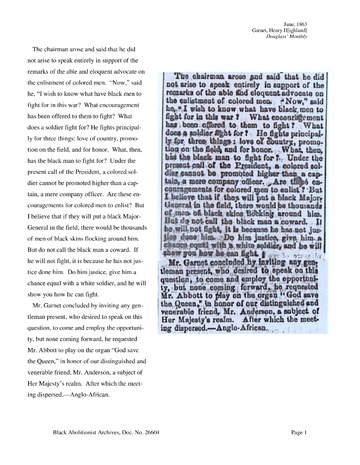
Speaker or author: Garnet, Henry Highland, 1815-1882
Newspaper or publication: Douglass' Monthly
The speaker said that black soldiers were not given the same incentives to fight as white soldiers and this just continued the prejudicial injustice they had already suffered. He asked only that equal rights prevail in the military.
Description of file(s): PDF 1 page, 256 word document (text and image)
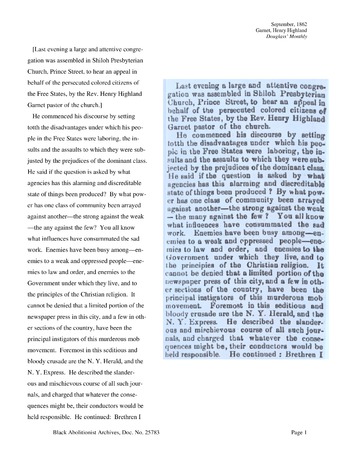
Speaker or author: Garnet, Henry Highland, 1815-1882
Newspaper or publication: Douglass' Monthly
The speaker argued that prejudice and acts of violence against the free people of color in the northern states was instigated by southern extremists in an effort to disrupt the union and encourage unrest. He accused northern newspapers and unjust journalism (fed by southern sympathies) for the current violence against black Americans in the north.
Description of file(s): PDF 4 page, 844 word document (text and images)
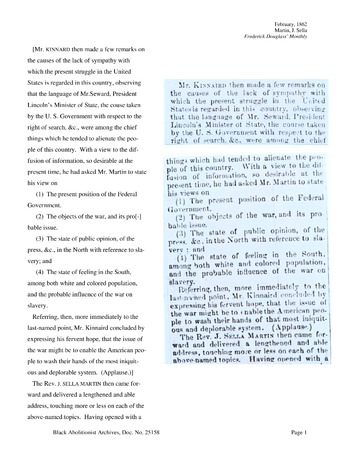
Speaker or author: Martin, J. Sella (John Sella), b. 1832
Newspaper or publication: Frederick Douglass' Monthly
Speech delivered before an English audience explaining in general terms the causes and possible outcome of the Civil War. The speaker placed emphasis on the injustice of laws like the Fugitive Slave Law that were being passed in the U.S. just before the war began.
Description of file(s): PDF 6 page, 1,285 word document (text and images)
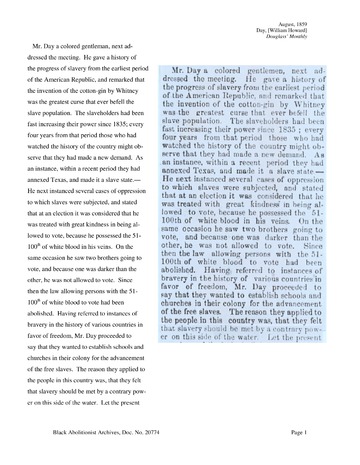
Speaker or author: Day, William Howard, d. 1900
Newspaper or publication: Douglass' Monthly
Brief speech in which the speaker appealed to his Irish audience for help in the fight for emancipation. He gave an example of the conditions under which the slaves live and blamed the cotton industry for the continuation of slavery.
Description of file(s): PDF 2 page, 352 word document (text and images)
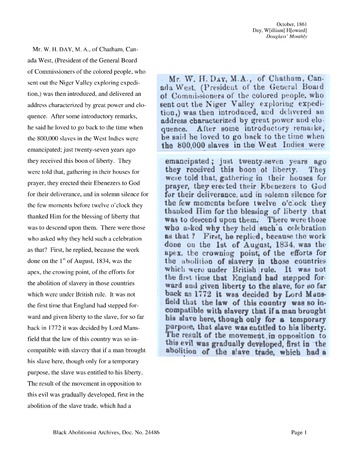
Speaker or author: Day, William Howard, d. 1900
Newspaper or publication: Douglass' Monthly
The speaker expressed his thoughts on the differences between the slave states and the free states. Although argument had been made that slavery was necessary for the good of the economy, he noted that from his experience and the current price of land, he believed that instead slavery "impoverished the land." He also expressed his thoughts on the influence of cotton on continuing slavery; and his belief in the benefits of colonization as an alternative to living in a country that was becoming wealthy from slavery.
Description of file(s): PDF 7 page, 1,504 word document (text and images)



